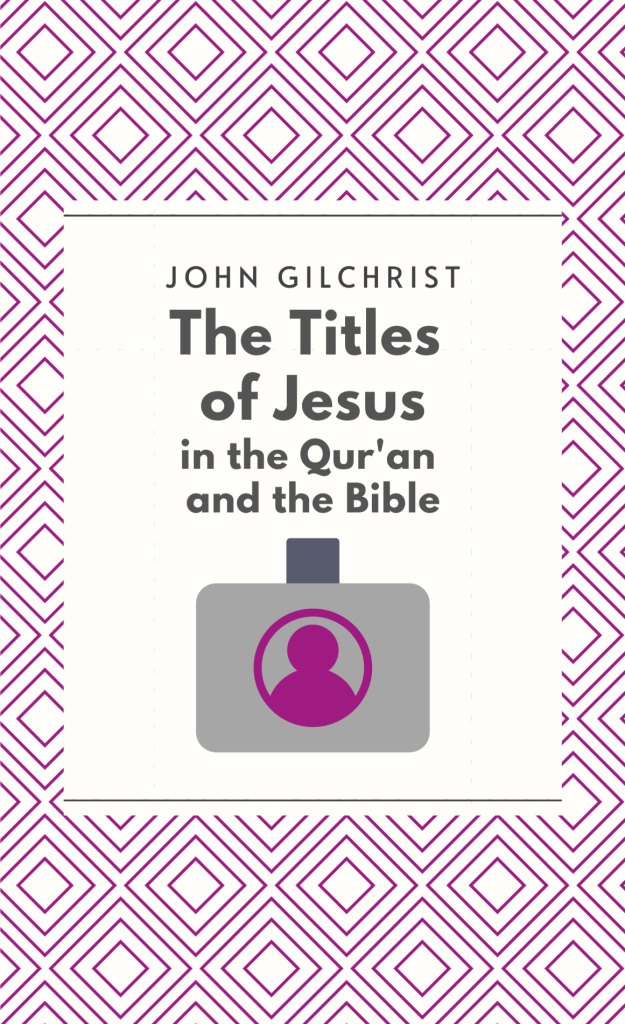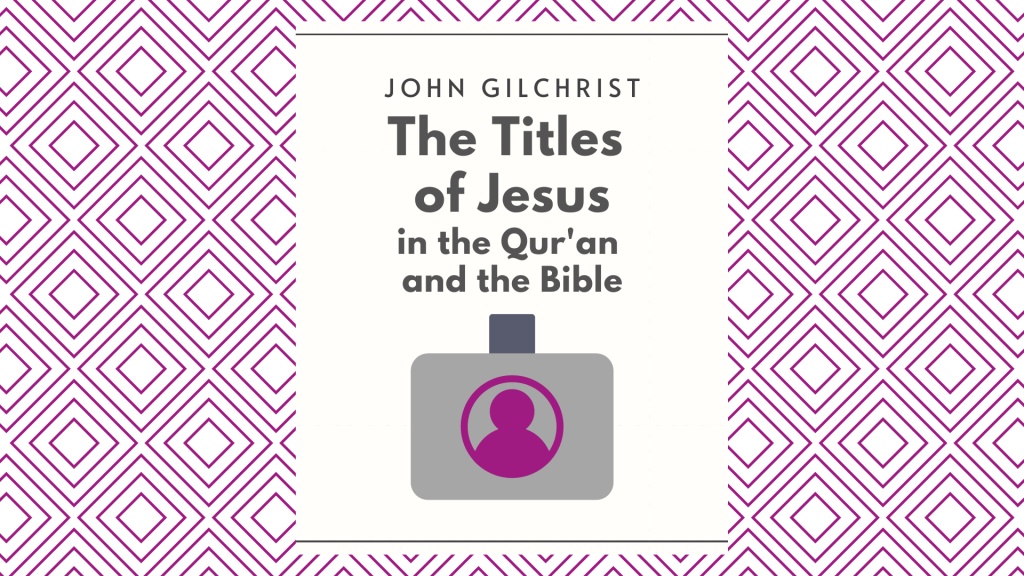Jesus in the Qur'an: the Messiah (Al-Masih)
The Titles of Jesus in the Qur'an and the Bible


Chapters
Jesus alone is called the Messiah in the Qur'an. Eleven times he is given this title and occasionally he is referred to solely by this title without being referred to by name. No explanation of the title is given in the Qur'an. What is of interest, however, is that Jesus is chiefly called the Messiah in passages that are alleged to have been revealed to Muhammad at Medina after the Hijra.
The title Messiah is extremely relevant to both the Christian and Jewish religions. The Jews, in their holy scriptures, have an abundance of prophecies of one glorious Savior to come who is called the Messiah (Daniel 9:25), the anointed one, and they have long awaited his coming. At the time of Jesus this Messianic expectancy reached its peak but after the destruction of Jerusalem forty years after the ascension of Jesus this hope waned among the Jews.
To the Christians, Jesus is the promised Messiah. He said he was in no uncertain terms. (John 4:25-26) The Jews in his time could not perceive that Jesus was the Messiah because they had expected a military leader who would drive out all foreign powers from the land of the Jews and set up a kingdom in Israel which would possess world-wide authority. But the Messiah came "not to be served, but to serve, and to give his life a ransom for many" (Matthew 20:28).
In Hebrew the word Messiah means "the Anointed One". It can, in a lesser sense, refer to any priest or anointed leader and occasionally the expression is used in this context in the Jewish Scriptures. But it became in time a title for the one who was to come, the final herald of God's salvation, the Redeemer of the world.
Significantly the title only appears in the Qur'an after Muhammad has made some contact with the Jews and Christians of Arabia. Clearly Qur'anic use of the title is linked to Jewish and Christian beliefs about the Messiah. Therefore, we must go into Jewish expectations and Christian beliefs about the Jewish and Christian beliefs about the Messiah to find out what the title means.
At this stage, however, we must ask whether this title Messiah has any meaning that makes the one who holds the title in any way superior to the other great prophets of God. In Quran 4.171 it is said that the Messiah is "only a messenger" but to both the Jews and the Christians the Messiah is a man who is the greatest among men, one possessed of regality, majesty, excellence and splendour for above that of all other men. He is unique in his glory and there is no one to compare with him.
By offering no explanation of this title, the Qur'an is at the same time making no contest against the accepted longstanding beliefs of the Jews and Christians about the Messiah. To both he is far more than just a messenger. The title in Jewish and Christian scriptural usage clearly implies greatness of such a degree that all the true messengers of God will ultimately bow to him in homage and obeisance. By admitting the Christian contention that Jesus is the Messiah, the Qur'an is in fact implying that he is the ultimate man of glory in human history and that the is the one who is the final expression of the revelation of God to men.
Nevertheless we cannot even stop here for we find in the Bible that, to both Jews and Christians, the title Messiah is in fact synonymous with the title Son of God. In these circumstances it is rather amazing to find that the Qur'an calls Jesus the Messiah and denies that he is the Son of God in the same breath. Let us examine some of the test in the Bible that show that the expressions Messiah and Son of God are synonymous. (The word "Christ" means "Messiah" and as we have been consistently referring to the "Messiah" and have been quoting from a Muslim translation of the Qur'an which uses the word Messiah rather than Christ which is used by other Muslim translators, we shall continue to do so).
a) Jewish believers in Jesus called him both the Messiah and the Son of God, Simon Peter was the first to do so:
"You are the Messiah, the Son of the living God". (Matthew 16:16)
Martha also used the two titles simultaneously in her expression of belief in Jesus.
"I believe that you are the Messiah, the Son of God, he who is coming into the world". (John 11:27)
b) The High Priest of the Jews used the titles simultaneously with one another asking Jesus if he was the Messiah.
"I adjure you, by the living God, tell us if you are the Messiah, the Son of God". (Matthew 26:63)
c) The early Christians used the titles synonymously with one another as well in various contexts:
"The beginning of the gospel of Jesus the Messiah, the Son of God". (Mark 1:1)
"These are written that you may believe that Jesus is the Messiah the Son of God and that believing you may have life in his name". (John 20:31)
d) Even the demons did so as well when they spoke to Jesus:
"And demons also came out of many, crying, "You are the Son of God!! But he rebuked them, and would not allow them to speak, because they knew that he was the Messiah". (Luke 4:41)
From these many texts we can see that the Messiah is no less than Son of God himself. This is no ordinary title - it is a title of the highest eminence and only the Son of God could exclusively claim the title of Messiah for himself according to the expectations of the Jews and the teachings of the prophets who preceded him.
By admitting that Jesus is the Messiah and by confirming his own emphatic declaration to this effect (John 4:25-26), the Qur'an has given Jesus a title which implies nothing less than that he is indeed the Son of God.
Ch. 3 - Jesus in the Qur'an: the Word of God (Kalimatullah) »